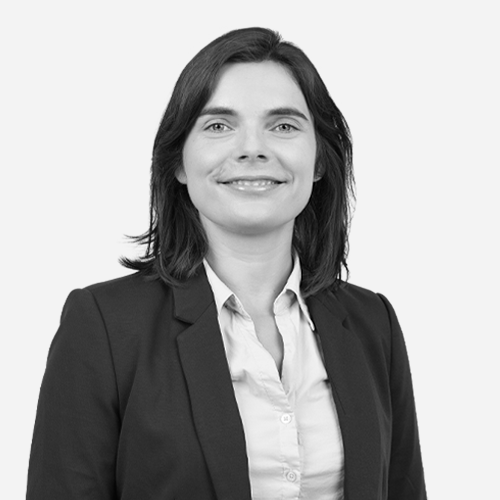Reimagining medical diagnostics with GenAI – how to stand out in HORIZON-EIC-2025-PATHFINDERCHALLENGES-01-02
25th June 2025 at 2:46 pm
The European Innovation Council wants to radically improve how we diagnose and treat cancer. With the 2025 Pathfinder Challenge “Generative-AI based Agents to Revolutionise Medical Diagnosis and Treatment of Cancer” (HORIZON-EIC-2025-PATHFINDERCHALLENGES-01-02), the EIC is calling for groundbreaking ideas that combine the power of GenAI with real clinical utility. With a deadline on 29 October and up to €4 million funding, now is the time to start building a consortium and outlining the project idea. If your GenAI concept goes beyond the obvious and combines deep tech with medical impact, read on.
What kind of GenAI agents is the EIC looking for?
The EIC is looking for interactive GenAI-based agents or super-agents that can accompany patients and clinicians along the entire clinical pathway, from early risk prediction to personalised treatment.
The goal is to create autonomous agents that act as intelligent partners for clinicians. The super-agent concept refers to a system of AI agents working in combination to support full-spectrum clinical decisions, from early detection to treatment selection. These agents should:
- Integrate and interpret a wide range of health data (e.g. imaging, genomics, clinical notes, videos)
- Support personalised diagnostics and treatment decisions
- Enhance pattern recognition and reduce diagnostic inconsistencies
- Deliver a longitudinal view of the patient across the care pathway
In addition, the EIC encourages the integration of other advanced AI approaches, such as:
- Graph neural networks
- Neural fields
- Topological or geometric deep learning
Pro tip: Make sure your concept is not just technically novel but also aligned with the idea of a system that supports clinicians throughout the entire patient journey.
How to hit the challenge: Key requirements
Projects must focus on one of the following cancers: breast, cervical, ovarian, prostate, lung, brain, stomach or colorectal. Each proposal must address both of the following areas, choosing at least one sub-objective from each:
Area 1: Technological area
- GenAI tools for integrating multidimensional multimodal data, such as medical imaging, lab results, genomics, videos and clinical records
- Medical data augmentation, including generation of synthetic medical data (e.g. genomic data, images, etc.) from existing sources (e.g. creating CT images from MRI scans) to support iterative model training
- Medical knowledge representation and integration, linking imaging features with demographic information and systemic conditions
Area 2: Clinical area
- Predictive diagnosis agents that estimate cancer risk using history, imaging and genetic data
- Enhance personalised treatment selection, including personalised treatment tools that recommend therapy and predict progression based on integrated and synthetic data
Projects that address only one of the two areas or other cancer types will be considered “out” of scope.
Pro tip: Clearly map your concept to the tackled objectives from each area and explain why your selected cancer type is suitable for high-risk, high-gain research.
Beyond the research: what makes a strong application
To compete, your proposal should:
- Include meaningful performance metrics and diverse datasets
- Demonstrate proof of concept in a controlled environment
- Improve explainability, using causal inference, visualisation tools or other frameworks
- Comply with the EU’s Trustworthy AI concept, relevant ethical principles and the AI Act
Applicants should plan to use and contribute to the Cancer Image Europe platform and align with the EU Health Data Space metadata standards (Health DCAT-AP).
Pro tip: Build trust by showing how your models will be transparent, reproducible and clinically meaningful, not just technically impressive.
Collaboration and portfolio building
The Challenge will fund a portfolio of projects that collectively deliver a toolkit of validated agents and models. The EIC Programme Manager will support shared planning and collaboration. Portfolio goals include:
- A shared database of synthetic medical images
- Benchmarking of agents across use cases and cancers
- Clinical validation across multiple sites
- New workflows for oncology diagnostics and treatment
- Common frameworks for regulatory and ethical compliance
Pro tip: Mention how your team will contribute to one or more of these collaborative elements and benefit from portfolio-level resources.
Does your idea fit the call topic? Get in touch with us!
This is one of the most strategically ambitious health challenges in the Horizon Europe programme. If you have a radical idea for an interactive GenAI agent that integrates data, makes predictions and improves clinical decision-making, this is your call. Projects should be early-stage and high-risk, focusing on foundational research (TRL 1 to 4) rather than incremental product upgrades. Don’t play it safe – show how your idea breaks new ground and contributes to a European lead in next-generation diagnostics.
We at accelopment have successfully supported the preparation of multiple Pathfinder Challenge and Open proposals, including the ongoing PEARL-DNA, BoneOscopy, POLINA, PIONEAR and CORENET projects. With many years of proposal writing experience, we can support you through your application process and during the implementation of your funded Pathfinder Challenge project. Have a look at our Proposal Writing, Project Management and Communication, Dissemination and Exploitation services and contact our EIC Pathfinder experts to discuss how we can best support you with your proposal and ambition.
If you want to be notified as soon as we publish any EIC-related news, you can subscribe to our blog posts and stay updated about the latest developments, trends, and results.

Dr. Eva Avilla Royo
Research & Innovation Project Manager

Andreia Cruz
Research & Innovation Project Manager
